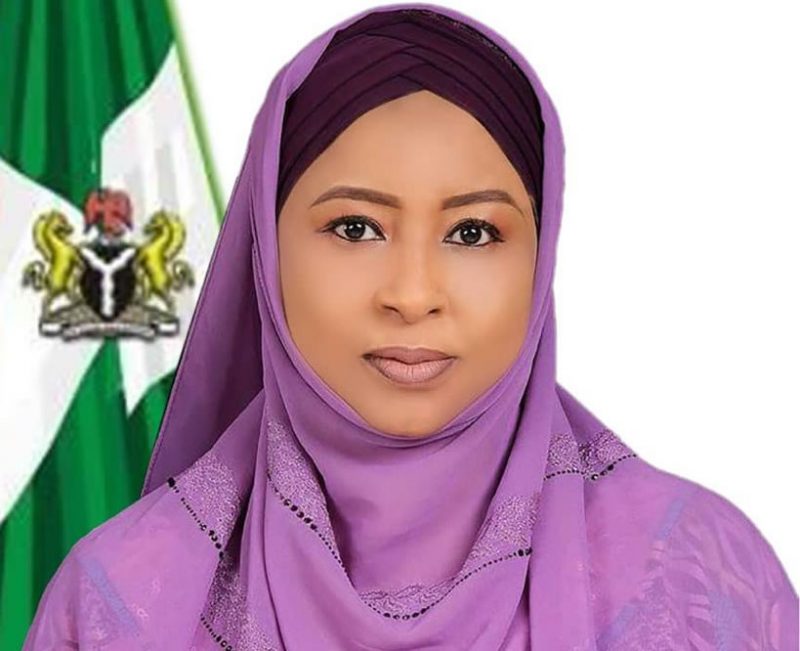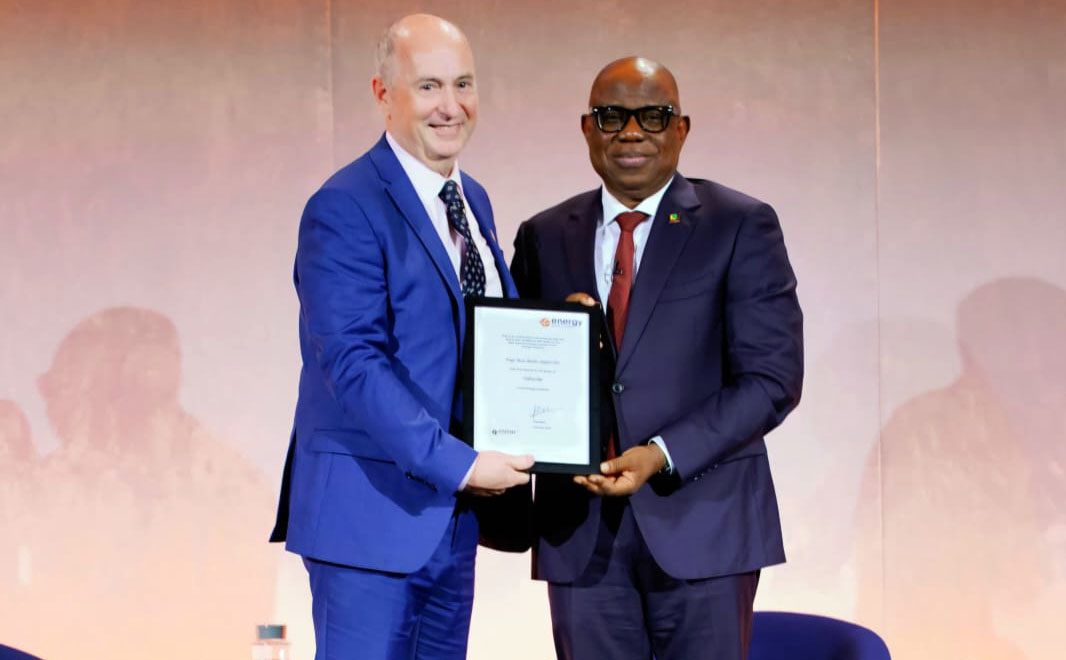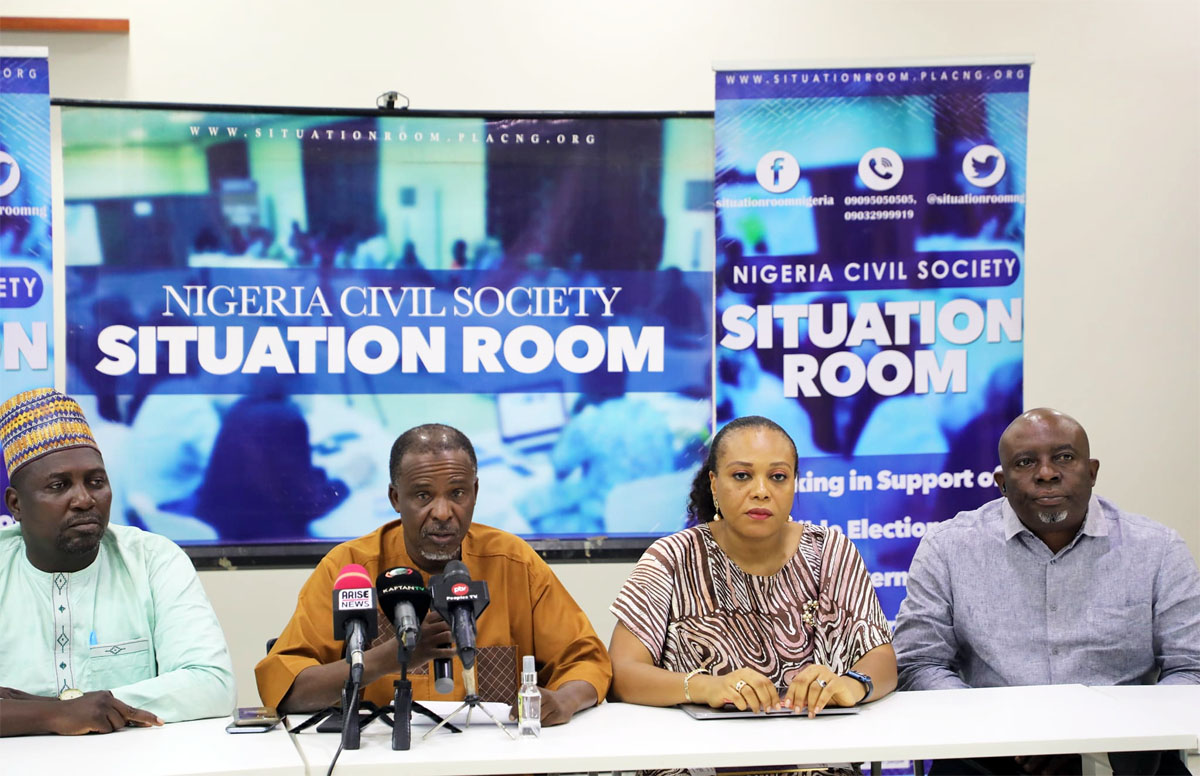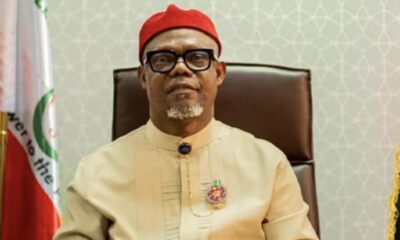News
20 million Nigerians benefitting from our cash transfer – FG

The Federal Government says over two million households in Nigeria are currently benefitting from its conditional cash transfer programme.
The government also said over 20 million persons were indirect beneficiaries of the programme in the two million households.
This came as it began partnership with the Economic and Financial Crimes Commission,EFCC,the Independent Corrupt Practices and Other Related Offences Commission,ICPC and other relevant agencies to probe compliance level of the National Social Investment Programme,NSIP in states of the federation.
The National Coordinator of the National Social Investment Programmes, NSIP, Dr. Umar Bindir, speaking on Tuesday at the stakeholders’ meeting on state compliance check exercise of NSIP in Abuja, said, ”As we speak, we are now advancing cash transfer to two million households, these are houses of not individuals, so if you are approximately putting 10 people per household,you are talking about probably like 20 million or so people that we are handling.”
Bandir said the government was spending between N12 billion to N15 billion monthly.
“When you look at N-Power,we have a bill of possibly between N12 billion to 15 billion every month. And you can estimate that we have 510,000 now ongoing and we have the batch c for 490,000 coming on,so when you multiply the number of the graduates by N30,000 per month, you will get the figure,”he said.
He said government was injecting N12 billion and N14 billion every month into the funds for feeding school children.
He said, “If you look at the school feeding,you will see that we are feeding between nine to ten million children nationwide and each child on a schooling day is fed with N70 per meal,so again,when you do the arithmetic,you get something maybe between N12 billion and N14 billion every month in feeding these children during school every month.
“But the finances injected in summary,into the National Social Investment Programme,the recurrent alone is over N300 billion. That is not enough,that is less than possibly what is required, gauging against the number of poor and vulnerable we have in this country.
He said, ”We are beginning to see the multiply effects, people who have gotten credit and are now hiring one or more people, therefore,the employment generation is improving. The graduates,some of them are exiting and establishing their businesses.
The Permanent Secretary, Ministry of Humanitarian Affairs, Disaster Management and Social Development, Dr Nasir Sani-Gwarzo, speaking at the event, said government had begun partnership with relevant agencies in carrying out the compliance check of the implementation guidelines “of all our programmes and to develop a standard and effective compliance check structure for the various NSIP assignments.”
The Permanent Secretary,who was represented by the Director, Special Needs, Mrs Nkechi Onwukwe, explained that,”Our primary goal is to meet the needs of the people who need a helping hand from Government to restore hope, provide support and succor, as well as an enabling environment for recovery, rehabilitation and social inclusion, while ensuring their human dignity is upheld at all times.”
The creation of the ministry,he explained, “was necessitated by the compelling need to harmonize, synergize, institutionalize, as well as provide coordination of all government’s humanitarian and social interventions.
“This is in line with the vision of Mr. President to lift 100 million Nigerians out of poverty in 10 years.”
“The National Social Investment Programme, a social investment initiative aimed at tackling poverty across the country was launched, targeting “the poorest of the poor and the socially excluded members of the society.”
Speaking more on the event, he said, ”The activities of the Mmnistry constantly impact on the well-being of the indigent citizens and contributes to the socio-economic development of the country and in order for the ministry to effectively provide the desired and much needed coordination and leadership it was conceived to provide, it must have an effective and consistent means of appraising its activities.”
Sani-Gwarzo said since inception, the ministry had so far “achieved a lot in the area of the provision and effective coordination of humanitarian interventions in keeping with our mandate. “
“We have also been able to provide coordination through cooperation and partnerships with relevant government MDA’s, development partners, UN agencies and other strategic partners.
“This is all in a bid to ensure sustained and expanded social protection programmes, prompt emergency response services, and appropriately targeted humanitarian interventions,”he said.
Noting that,“The National Social Investment Programme,NSIP is the biggest social protection and poverty eradication programme ever put in place by any government in Nigeria and one of the biggest in Africa”,he explained that:”it was established by President Buhari in 2016 to address immediate and long-term socio-economic imbalances and inequalities, alleviate poverty, and stimulate accelerated economic growth.”
News
NNPC CEO Ojulari Receives Prestigious Energy Institute Fellowship in London

NNPC CEO Ojulari Receives Prestigious Energy Institute Fellowship in London
The Nigerian National Petroleum Company Limited (NNPC Ltd.) has earned international acclaim as its Group Chief Executive Officer, Engr. Bashir Bayo Ojulari, has been conferred with the Fellowship of the Energy Institute (FEI), United Kingdom — one of the highest honours in the global energy industry.
The Fellowship recognises senior energy leaders who have demonstrated sustained, high-impact contributions to the advancement of the energy sector. It was formally conferred on Ojulari during International Energy Week (IEW) in London, a leading platform for energy policy, finance, and industry leadership. (punchng.com)
The honour was presented by Andy Brown, President of the Energy Institute, who praised Ojulari’s transformative leadership of NNPC Ltd., highlighting his role in strengthening governance, embedding a performance-driven culture, and repositioning the company for long-term value creation.
Under his stewardship, NNPC Ltd. has implemented investor-focused reforms, enhanced operational excellence, and expanded strategic global partnerships, all contributing to increased confidence in Nigeria’s energy sector. The recognition reinforces NNPC’s ongoing transformation into a commercially driven, globally competitive, and transparent energy company.
READ ALSO:
- FCT Polls: CSO Situation Room Flags Late Voting, Vote Buying, Logistical Challenges
- ADC Defeats APC to Win First Polling Unit in FCT Area Council Election
- Trump Moves to Indefinitely Suspend Work Permits for Asylum Seekers
Significance for Nigeria and Africa
Experts note that the FEI Fellowship is not only a personal achievement for Ojulari but also a major institutional endorsement of NNPC Ltd.’s reform agenda. Being recognised at International Energy Week, which convenes policymakers, financiers, regulators, and industry leaders, positions the company at the centre of critical global energy discussions on sustainability, energy transition, and capital formation.
The award also signals growing international confidence in NNPC Ltd. and highlights Nigeria’s strategic role in Africa’s energy security and global energy transition ambitions. (vanguardngr.com)
Ojulari’s Leadership Achievements
Since assuming office, Engr. Ojulari has overseen multiple strategic reforms at NNPC Ltd., including:
- Driving governance and operational reforms to boost accountability.
- Expanding strategic partnerships and investor-focused initiatives.
- Enhancing execution efficiency across the company’s subsidiaries.
- Positioning NNPC Ltd. as a credible, investment-ready energy enterprise.
These efforts have not only improved the company’s profitability and performance but also strengthened Nigeria’s energy security and market competitiveness. (punchng.com)
Ojulari described the Fellowship as a reflection of collective effort within NNPC and reiterated his commitment to sustainable value creation, global best practices, and energy sector innovation.
NNPC CEO Ojulari Receives Prestigious Energy Institute Fellowship in London
News
FCT Polls: CSO Situation Room Flags Late Voting, Vote Buying, Logistical Challenges

FCT Polls: CSO Situation Room Flags Late Voting, Vote Buying, Logistical Challenges
The Nigeria Civil Society Situation Room has raised concerns over multiple irregularities in the ongoing Federal Capital Territory (FCT) Area Council Elections, citing late polling unit openings, reports of vote buying, and logistical challenges that could affect voter participation.
According to the Situation Room, a coalition of over 70 civil society organisations advocating for credible elections in Nigeria, many polling units opened late, with an average start time of 9:15 a.m., well after the official 8:30 a.m. schedule. Observers also noted low voter turnout in several areas, particularly in AMAC, although queues began forming later in Kuje, Kwali, Gwagwalada, and Abaji Area Councils.
Vote Buying Observed
The coalition reported instances of vote buying, with voters allegedly offered up to ₦10,000 in exchange for ballots in units such as PU008, PU056, PU057, and PU058 in Gidan Mangoro Ward, AMAC. While some of the transactions were open, others were conducted discreetly.
The Situation Room warned that such electoral malpractice undermines the integrity of the election and called on electoral officials, political parties, and security agencies to intervene and prevent further incidents.
READ ALSO:
- ADC Defeats APC to Win First Polling Unit in FCT Area Council Election
- Trump Moves to Indefinitely Suspend Work Permits for Asylum Seekers
- Peller Escapes Generator Fire at Lagos Home, Recalls Earlier Lekki–Epe Scare
Logistical and Accessibility Issues
Observers noted that some voters struggled to locate their polling units after last-minute changes communicated by INEC via text messages. The Bimodal Voter Accreditation System (BVAS) generally performed efficiently, with a one-minute average accreditation time, though malfunctions were reported in a few units including Gwako Town Primary Schools II & IV and PU143, Gwagwalada.
The Situation Room also highlighted accessibility challenges for voters with disabilities, noting that braille ballot guides, magnifying glasses, and other assistive materials were largely absent, even in designated disability communities such as Karimajiji and PU052, Wuse.
Security and Election Conduct
Security personnel, including officers from the Nigeria Police, Civil Defence, Immigration Service, and Fire Service, were present in significant numbers and generally maintained order and professionalism.
Isolated incidents of intimidation and harassment were reported in locations such as Grade 1 Area Court, Rubochi (Kuje); Naharati Sabo School II, Rimba/Ebagi; and PU3, UNG Liman/UNGWAR LIMAN 1, Abaji Central, but security agents swiftly resolved these situations.
Call for Calm and Integrity
The Situation Room commended the INEC FCT Help Desk for promptly addressing reported issues and called on all stakeholders to maintain calm, resist vote buying, and ensure that the will of the people is respected as the polls continue and results are collated.
The report was jointly signed by Mma Odi and Celestine Odo, co-conveners of the coalition.
FCT Polls: CSO Situation Room Flags Late Voting, Vote Buying, Logistical Challenges
News
Trump Moves to Indefinitely Suspend Work Permits for Asylum Seekers

Trump Moves to Indefinitely Suspend Work Permits for Asylum Seekers
United States President, Donald Trump, has introduced a sweeping immigration proposal that could halt the issuance and renewal of work permits for asylum seekers for many years, marking what analysts describe as one of the most consequential shifts in U.S. asylum employment policy in decades.
The proposed rule, released on Friday by the U.S. Department of Homeland Security (DHS), seeks to suspend new employment authorisation for asylum applicants until the average processing time for designated asylum cases falls to 180 days or fewer.
According to DHS data, the asylum case backlog now exceeds 1.4 million applications, with the department projecting that meeting the 180-day benchmark could take between 14 and 173 years under current conditions—effectively creating an indefinite suspension of asylum work permits.
Despite the bleak projections, DHS said administrative restructuring, staffing increases, and efficiency-focused reforms could eventually reduce processing delays. However, officials acknowledged that significant improvements would take time.
READ ALSO:
- Peller Escapes Generator Fire at Lagos Home, Recalls Earlier Lekki–Epe Scare
- Abuja Church Expels Newly Married Woman Over Refusal to Consummate Marriage
- Pastor Sentenced to Death by Hanging for Murdering Landlord in Akwa Ibom
In a statement accompanying the proposal, DHS said the rule, if finalised, “would reduce incentives for frivolous, fraudulent, or otherwise meritless asylum claims.” The department stressed that work authorisation is not an entitlement, but a discretionary benefit granted by the DHS secretary.
If implemented, the policy would generally bar migrants who entered the United States unlawfully from receiving new work permits or renewing existing ones while their asylum claims remain pending.
Limited exemptions would apply only to individuals who alerted U.S. border officials within 48 hours of arrival that they feared persecution, torture, or faced another urgent humanitarian threat.
The proposal forms part of a broader immigration clampdown under President Trump, who returned to office in 2025 after campaigning on stricter border enforcement and tougher asylum standards.
Throughout his campaign and early months back in office, Trump portrayed immigrants and asylum seekers as economic and security burdens, claims that critics argue are not supported by crime or labour market data.
Immigrant advocacy groups, civil rights organisations, and some Democratic lawmakers have criticised the proposal, warning that denying work permits could push asylum seekers into poverty, increase dependence on charities, and drive people into undocumented employment.
Legal experts also expect significant court challenges, arguing that the rule could weaken long-standing U.S. and international asylum protections and undermine due-process guarantees.
The proposal will undergo a 60-day public comment period once it is formally published in the Federal Register on Monday. The regulatory process could extend for months or even years, with the final outcome uncertain amid anticipated legal battles.
Until then, existing regulations governing asylum seeker work permits in the United States remain in force.
Trump Moves to Indefinitely Suspend Work Permits for Asylum Seekers
-

 Politics2 days ago
Politics2 days agoPeter Obi Launches ‘Village Boys Movement’ to Rival Tinubu’s City Boys Ahead of 2027
-

 International3 days ago
International3 days agoCanada Opens New Express Entry Draw for Nigerian Workers, Others
-

 News2 days ago
News2 days agoPolice to Arrest TikToker Mirabel After She Recants False Rape Claim
-

 International2 days ago
International2 days agoEpstein, Ex-Israeli PM Named in Alleged Profiteering From Boko Haram Crisis
-

 metro3 days ago
metro3 days agoOsun Awards 55.6km Iwo–Osogbo–Ibadan Road Project to Three Contractors
-

 Politics2 days ago
Politics2 days agoUpdated: Rivers Senator Mpigi Barinada dies at 64
-

 Education7 hours ago
Education7 hours agoUTME: JAMB Clarifies Position on Hijab During Biometric Capture
-

 metro3 days ago
metro3 days agoOndo Monarch Killed as Bandits Strike Akure North















